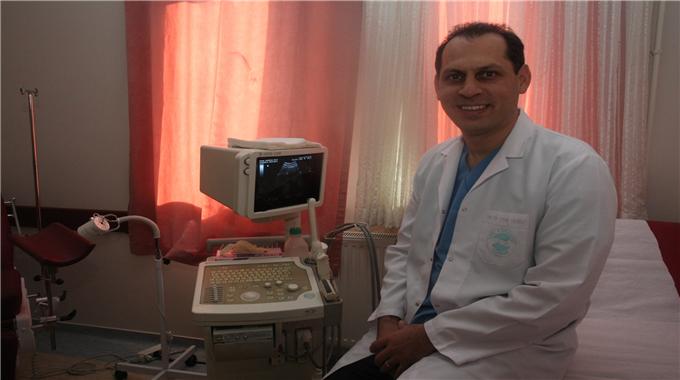
IVF method continues to be a ray of hope for couples who cannot conceive naturally.
Op. Dr. Ufuk Yılmaz, Specialist in Obstetrics and Gynecology at Medical Park Karadeniz Hospital, stated that infertility, which is becoming more common, does not prevent the dream of having a child.
Yılmaz pointed out that infertility, defined as the inability to conceive despite one year of regular unprotected sexual intercourse, is one of the biggest problems for couples nowadays, with an incidence of about 15% in the society.
Decrease in Fertility after the Age of 32
He emphasizes that fertility decreases, especially after the age of 32, and says, “Approximately 35% of couples who cannot have children have problems in men, and about 45% have problems in women. In about 15-20% of infertile couples, no problem can be detected in either partner, which is called unexplained infertility. In about 45-50% of couples, both partners have problems. Fertility is at its maximum level in the 20s. After the age of 32, it starts to decrease. As the biological clock progresses, the chance of women getting pregnant decreases. Nowadays, due to changes in social life, women delay their pregnancy ages. Other reasons causing infertility in women include blocked fallopian tubes, ovulation disorders (PCOS), decreased ovarian reserve, and benign uterine tumors (fibroids) or uterine adhesions. The most common causes of male infertility are a low sperm count, slow sperm motility, or the absence of sperm. Sometimes there may be abnormalities in the shape of the sperm cells, or they may die before reaching the egg. Smoking and irregular lifestyle are also among the other reasons for couples not being able to have children.
Obesity Reduces Fertility
Yılmaz states that obesity reduces fertility and says, “Stress is not a very important factor in infertility cases, but in some scientific studies, it is accepted that it may have a 5% effect. Because stress can cause problems in the release of hormones responsible for pregnancy, which can negatively affect egg formation and development or ovulation hormones. Nowadays, obesity, a widespread problem, may not reduce fertility fundamentally, but excessive release of female hormones from fat tissue can suppress ovulation and indirectly make it difficult to conceive.
The more excess weight, the less ovulation occurs. If the obesity threshold is reached, it can reduce fertility by up to 50%. Due to the increasing prevalence of sexually transmitted diseases, blockages can occur in the fallopian tubes in women and in the ducts in men. When there is a blockage in the tubes, there is also a blockage in the passages where fertilization occurs, and pregnancy cannot occur because the egg cell cannot be transferred to the uterus, where fertilization takes place with sperm.”
He states that if no problem is detected, the first treatment applied to couples who cannot have children is ovulation induction (OI) and adds, “First of all, the cause of infertility needs to be determined. For this purpose, hormone tests performed on the second or third day of the menstrual cycle, HSG, which is a uterus and tube imaging, and sperm analysis performed on men are the main tests that need to be done.
If no problem is detected, ovulation treatments (OI) are applied to couples who cannot have children. These treatments usually last between 3-6 months and ensure egg development in women, and then ovulation injections are performed, and recommended intercourse days are given. The success rate is between 10-12%. Intrauterine insemination (IUI) is the treatment method preferred in patients who have completed simple treatments or have a sperm count so low that they cannot have children naturally. In short, it is the process of delivering sperm, which is taken from the man, into the uterus of the woman with the help of a thin catheter. The success rate is between 15-18%.”
“Couples Prefer Short-Term Treatments”
Yılmaz emphasizes that couples prefer short-term treatments and says, “IVF is a treatment method applied to women who cannot conceive by classical methods. It is based on the principle of transferring embryos formed as a result of the fusion of male (sperm) and female (egg) germ cells under laboratory conditions to the uterus.
Fertilization carried out under laboratory conditions is achieved either spontaneously (in vitro fertilization) or by manually delivering a single sperm into a single egg (microinjection). Later, these eggs and sperm are fertilized and the resulting embryos are monitored. When the appropriate time comes, which is within 3-5 days after fertilization, the embryo is transferred to the patient.”
“Can Children Born with IVF Develop Healthily?”
Yılmaz advises couples never to lose hope and says, “Studies have shown that there is no difference in the possibility of anomalies between children born with this method and children conceived naturally. Our patients should never lose hope. There will always be an appropriate treatment method determined for them. However, it should not be forgotten that treatments for conceiving a child should never be delayed. Our couples who want to have children should not waste time with the mentality of ‘it will happen someday’.



